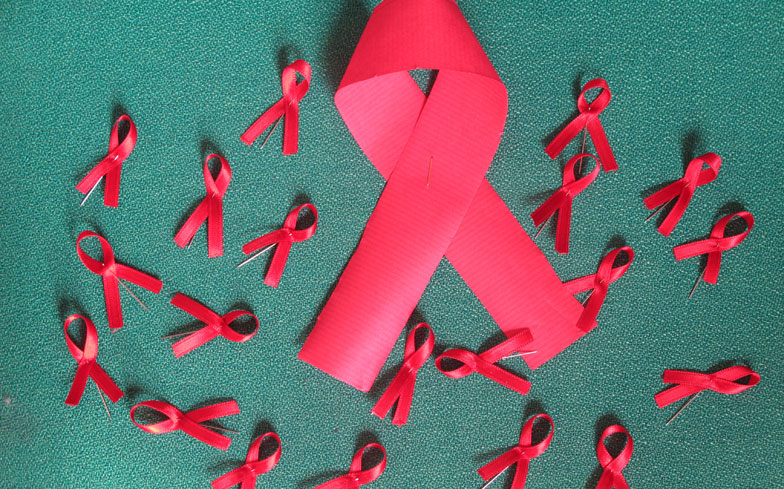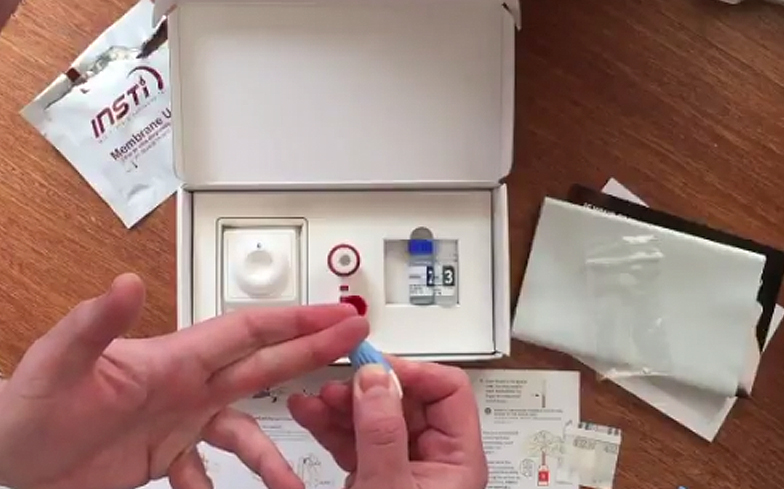
The United Kingdom is one of the first countries to exceed its UNAIDS 90-90-90 targets, which were set as part of the ongoing battle against HIV/AIDS.
Public Health England have reported that an estimated 92% of people living with HIV in the UK have been diagnosed, 98% of those diagnosed were on treatment, and 97% of those on treatment were virally suppressed.
The reports adds that there are an estimated total of 102,000 people living with HIV in the UK in 2017.
Of that total, 8% (8,200) were unaware of their infection.
However, 87% of all people living with HIV had an undetectable viral load as result of effective treatment and were unable to pass on their infection to other people.
This is widely known as Undetectable equals Untransmissible or ‘U=U’.

Related: Getting tested for HIV must be made to be as normal as going to the dentist for a check-up
New HIV diagnoses in the UK continue to decline, and fell 17% from 5,280 in 2016 to 4,363 in 2017.
This builds on a continuing decline of new diagnoses in gay and bisexual men, which started back in 2012.
This can largely be attributed to HIV prevention methods, such as using a condom during sex, the availability of PrEP through private means, increased HIV testing, and reductions in time to starting treatment.
However, the reports highlights that there are still gains to be made, most notably in missed opportunities for early diagnosis.
The date shows that in 2017, 43% (1,879) of new HIV diagnoses were made at a late stage of HIV infection.
With this, Public Health England have reiterated the importance for the public to accept the offer of an HIV test when attending a sexual health clinic.
“There can be no doubt prevention efforts to end the HIV epidemic in the UK are working. Our efforts must continue apace in order to eliminate HIV,” said Professor Noel Gill, Head of STIs & HIV at Public Health England
“With an estimated 8,000 people still unaware of their infection it is vital that people seek out an HIV test if they consider themselves at risk, or accept the offer of an HIV test by a healthcare professional, as early diagnosis is key to stopping transmission.

Related: HIV diagnoses are falling in the UK, but this is no time for complacency
“Treatment for HIV is freely available and highly effective, enabling people to live a long, healthy life. There are now a variety of ways people can protect themselves from being infected with or passing on HIV, including use of condoms; PrEP; regular HIV testing; and prompt initiation of antiretroviral treatment.”
Health and Social Care Secretary Matt Hancock added: “Many of us will remember a time when an HIV positive result was effectively a death sentence. Today’s report is a poignant and powerful reminder of how far we’ve come.
“Now in the UK, almost everyone with HIV is not only diagnosed and in treatment but living long, healthy lives – and we’re one of just a handful of countries to meet these ambitious UN targets.
“This didn’t seem possible just a few decades ago but thanks to the efforts of public health bodies, charities and the NHS to encourage early testing and pioneer high quality treatment, we are pushing ahead in the fight against HIV.”
These results come just before World AIDS Day on 1 December, which marks the 30th year since the awareness campaign first began.
President of the British Association of Sexual Health and HIV (BASHH) Dr Olwen Williams and Chair of the British HIV Association (BHIVA) Professor Chloe Orkin, added: “The UK today has one of the best success rates for people taking HIV treatment anywhere in the world – 98 per cent of those diagnosed are on treatment, and 97 per cent can’t pass HIV on because the level of the virus in their blood is undetectable.
“However, it is shocking that 43 per cent of those newly diagnosed were diagnosed late, leaving them at risk of serious ill health, and risking further transmission.
“There are still an estimated 8,200 people who don’t know their HIV status – a finger prick test could change not only their life but that of their partners.
“Yet despite this progress HIV stigma remains, which is why we must reach the wider community with these messages, so that HIV knowledge is based on fact not fear.”



